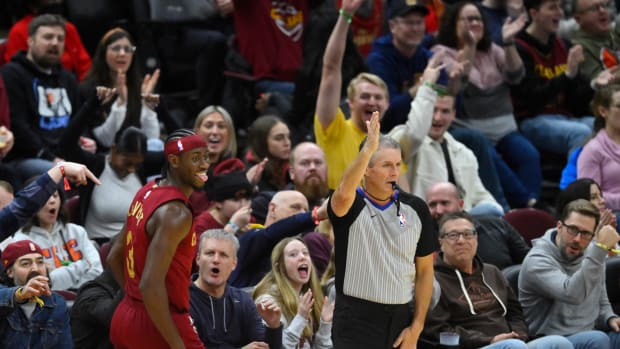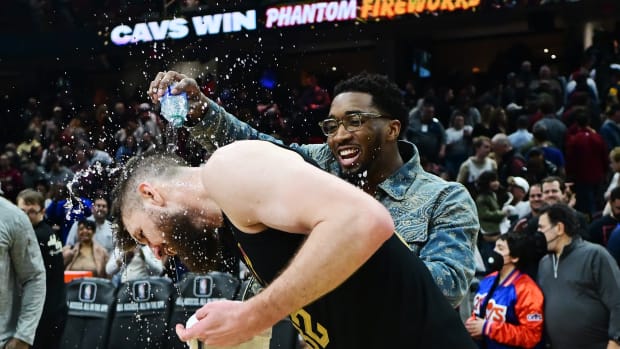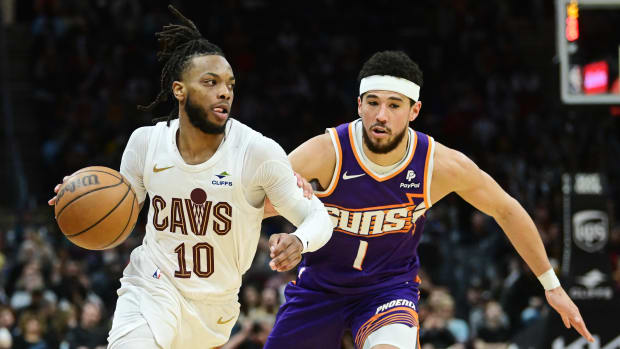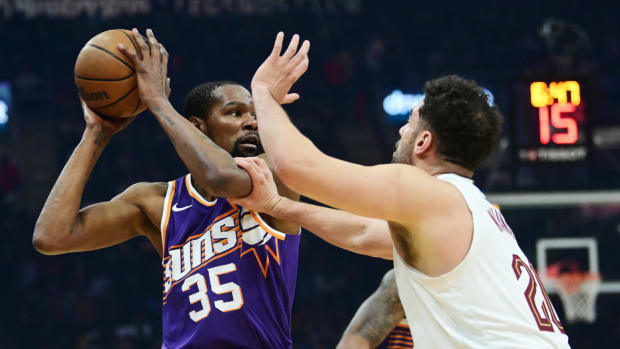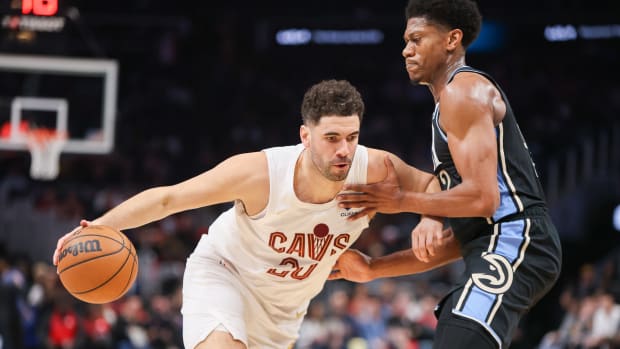Morrow: Fizdale firing a reminder NBA coaching a tough biz
For NBA coaches, the 2016-17 season was unprecedented in its foreign but welcomed stability. For the first time in 46 years (back when the league consisted of just 17 teams), not a single coach was fired. It was a rare -- and almost certainly brief -- reprieve from the standard volatility of NBA coaching jobs.
The temporary placidity of the NBA coaching landscape was a welcome change. It may have, however, lured us into a false sense of complacency. No NBA coaches were fired last year, but that was an anomaly. NBA coaches rarely stick around their franchises for long.
When trying out coaches, teams are basically throwing everything at a wall and seeing what sticks. Some teams find a gem: A Gregg Popovich, a Rick Carlisle, a Brad Stevens, a Steve Kerr. Most, however, continually repeat their coaching overturn. Memphis' firing of David Fizdale in particular is an interesting one because he was a good coach. So was his predecessor, Dave Joerger. It's difficult to explain why Fizdale was fired; it sounds like the Grizzlies chose Marc Gasol over him, and/or used Fizdale as a scapegoat for their team's mediocre start to the season.
The very fact that either -- or both -- of those reasons are legitimate possibilities is evidence of the fragility of the NBA's coaching realm. Fizdale butted heads with Gasol, and look where it got him. He benched Gasol in the fourth quarter of a loss to the Brooklyn Nets, and the very next day he found himself jobless.
NBA coaches have less power than their star players; there's no getting around it. When you think about it, it's an odd dynamic. Growing up, child athletes are taught to respect their coaches, and have to do so, because their coaches hold all the power by controlling their minutes. In high school and even college, players have nowhere near the level of pull that coaches do, because that player is only going to be there a maximum of four (and often just one) years.
In the NBA, though, the players suddenly have all the power. They're making more money than their coaches, and they're quantifiably more valuable to their franchises than their coaches are (with the very rare exception of a guy like Popovich, who might be an actual sorcerer). That makes it so much more difficult for coaches to do their jobs.
To properly lead a team, a coach should have control of the players. How can a coach control his players when he and the players both know that the front office would side with the (star) players in any major dispute? It has to be disconcerting from the coaches' point of view, and that's why to survive, coaches have to be unbelievably good at what they do (Popovich, Carlisle), and/or willing to listen and accept what their players have to say, and make it enough of a democracy to keep the players happy.
Less than a week into the 2017-18 season, the record lack of firings came to an end; the Phoenix Suns fired Earl Watson after he had coached just three games.
Prior to Watson's termination, it had been a shocking 532 days since a head coach had been fired. That coach, funnily enough, was Joerger. It's rather impressive, really, that the Grizzlies managed to fire two head coaches before 28 NBA teams fired one.
Given the history of NBA teams' willingness to fire their head coaches, it seems likely that Fizdale won't be the last coach we see fired. Fred Hoiberg, Jason Kidd, Alvin Gentry and Billy Donovan can all probably be considered on the hot seat right now, and there are a few other coaches who could likely get there pretty easily if their teams begin or continue to struggle.
Last season was an anomaly, not the norm. A majority of NBA coaches should probably avoid purchasing real estate in their current cities; they're in a tenuous line of work.
